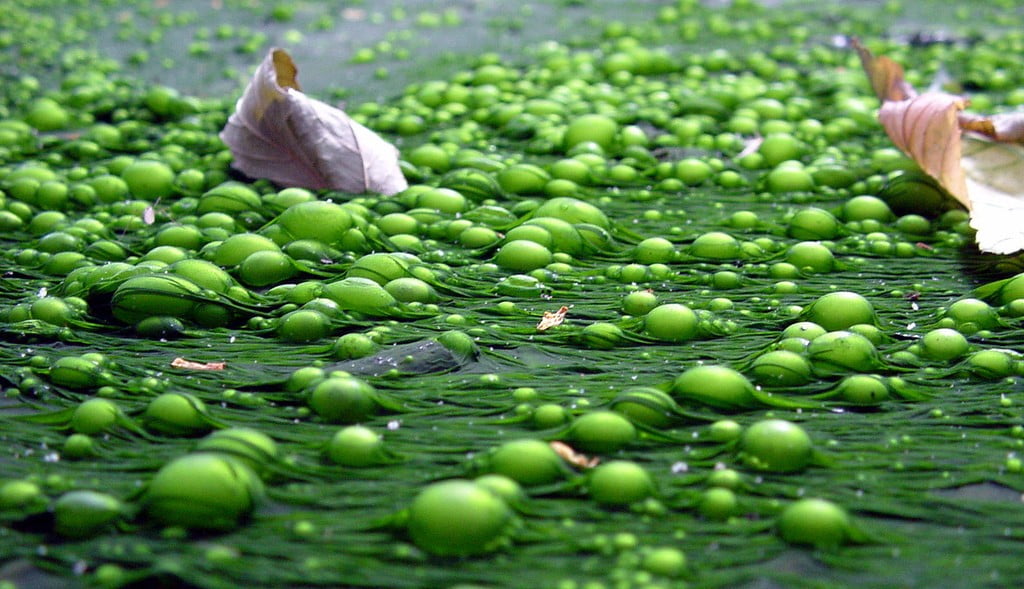In search of environmentally friendly alternatives to fossil fuel, corn, soybeans and palm oil have been converted into biofuels to power vehicles and factories. Clean sources of energy such as algae are thought to help the world wean itself off polluting fuels, but for years, the big lingering question was whether we could actually mass produce biofuels from these sources.
Now, Israeli researchers are using genetic engineering to mass-produce hydrogen-based fuels from microscopic algae. Tel Aviv University scientists were recently able to produce five times more hydrogen from these microalgae.
Claiming their method could one day meet all of our energy needs, they say the potential of algae as a source of clean energy is therefore much more promising than previously thought.
SEE ALSO: Israeli Researchers Use Spinach Leaves To Generate Clean Fuel
The appeal of algae is quite simple: The green layer that covers ponds and sea rocks can be converted into biofuel faster than conventional crops, such as corn and soy — without competing with food production. According to the US Department of Energy, the genetic diversity from the many varieties of algae presents researchers with “an incredible number of unique properties that can be harnessed to develop promising algal biofuel technologies.”
SEE ALSO: Researchers In Israel Announce A Revolutionary Alternative To Fuel
The TAU study, which was recently published in the scientific journals Plant Physiology and Biotechnology for Biofuels, reveals that clean energy can be produced from algae throughout the day and not just in a specific time in the morning. It was previously thought that these microalgae emit hydrogen only during sunrise, and thus only a small amount of hydrogen can be generated from them.
The research team used highly sensitive technology to discover that algae produce hydrogen from photosynthesis all day long. Armed with this discovery, the team harnessed genetic engineering to significantly increase algae’s production of this clean energy source.
Sign up for our free weekly newsletter
Subscribe“A huge underutilized potential”
Laboratory tests revealed that algae create hydrogen with the assistance of the enzyme hydrogenase, which breaks down when oxygen is present. The researchers discovered effective mechanisms to remove the oxygen, so hydrogenase can keep producing hydrogen.
“The discovery of the mechanisms makes it clear that algae have a huge underutilized potential for the production of hydrogen fuel,” said TAU’s Dr. Iftach Yacoby, who led the research. “The next question is how to beef up production for industrial purposes — to get the algae to overproduce the enzyme.”
Yacoby is now researching synthetic enzymes capable of increasing hydrogen production from microalgae to industrial levels.
“Since the beginning of time, we have been using agriculture to make our own food, but when it comes to energy, we are still hunter-gatherers,” Yacoby says. “Cultivating energy from agriculture is the next revolution. There may be other ways to produce hydrogen, but this is the greenest and the only agricultural one.”
Almost all of the hydrogen produced in the US comes from natural gas. But the methods used to draw hydrogen from natural gas are toxic and wasteful, according to the researchers. And, astonishingly enough, the world burns in just one year energy it took the earth over a million years to produce. That’s why Yacoby believes “we must stop being hunters and gatherers of energy. We must start producing clean energy — for our children and for our children’s children.”
Photos: Courtesy
Related posts

Resilient And Nutritious New Plant-Based Milk Aims To Make A Splash

Chocolate From Cultivated Cocoa Comes Without Environmental Toll

Plastic Fantastic: Startup Takes PVC Back To Its Crude Oil Roots






Facebook comments